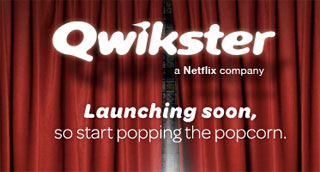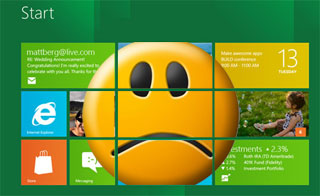 I like Netflix. I was a happy subscriber to its DVDs-by-mail service for years. Today, I’m a happy subscriber to its streaming service, which is the form of Internet TV we watch most often in this household. But I’m happiest just enjoying its services–the more attention I pay to the company, its actions, and its explanations for those actions, the more confused I get.
I like Netflix. I was a happy subscriber to its DVDs-by-mail service for years. Today, I’m a happy subscriber to its streaming service, which is the form of Internet TV we watch most often in this household. But I’m happiest just enjoying its services–the more attention I pay to the company, its actions, and its explanations for those actions, the more confused I get.
Back in November of 2010, Netflix introduced a streaming-only plan and hiked the prices of service tiers that included DVDs. Then in July, it split up the streaming and DVD services in a way that amounted to a stiff price hike if you wanted both. Its explanation of why it was doing this was oblique at best. Some customers got irate and issued threats involving leaving for Blockbuster–and enough of them apparently made good on their warnings to rattle Wall Street last week.
Now Netflix founder and CEO has blogged to say he’s sorry about not clearly explaining the July changes himself–although not, apparently, about the price hikes themselves. But that’s not his big news. That would be the announcement that Netflix’s DVDs-by-mail service, which has gone by the name “Netflix” since 1998, will soon be rechristened Qwikster. It’ll be a separate division of Netflix, and will add video games to its DVDs and Blu-Rays.
Henceforth, if you subscribe to both the streaming and DVD services, you’ll essentially have to deal with two different companies, with separate plans, separate billing, separate queues, and separate customer service.


 Who says you can’t teach an old operating system new tricks? For years, Windows was the world’s most annoying piece of software. It would blithely interrupt your work to tell you that there were unused icons on your desktop. Its search feature–even in the Professional version–inexplicably involved a puppy dog. It made paying customers jump through hoops to prove they hadn’t pirated the software, and sometimes accused them of stealing it anyhow. It rebooted itself to install updates when it felt like it, regardless of what you might be doing at the moment. I get irritated just thinking about it.
Who says you can’t teach an old operating system new tricks? For years, Windows was the world’s most annoying piece of software. It would blithely interrupt your work to tell you that there were unused icons on your desktop. Its search feature–even in the Professional version–inexplicably involved a puppy dog. It made paying customers jump through hoops to prove they hadn’t pirated the software, and sometimes accused them of stealing it anyhow. It rebooted itself to install updates when it felt like it, regardless of what you might be doing at the moment. I get irritated just thinking about it.